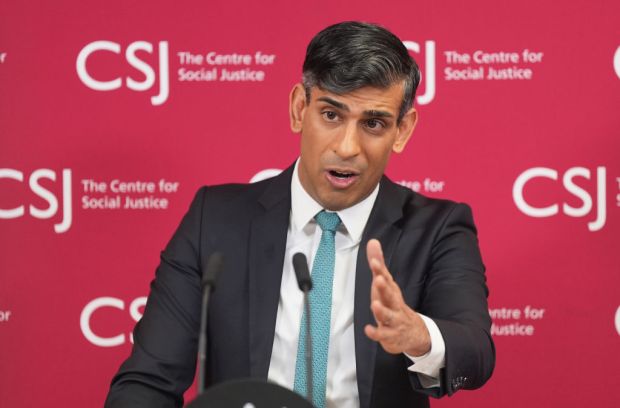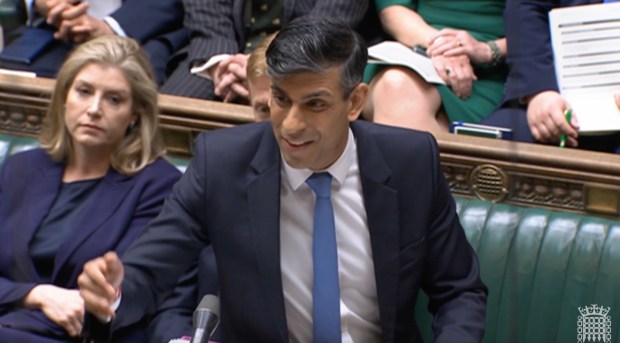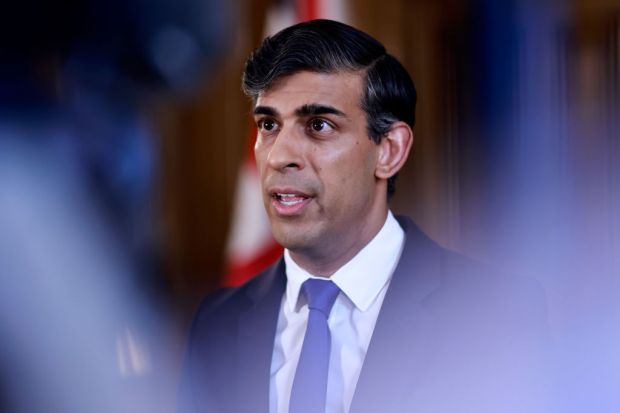A few short months ago, Liz Truss dismissed Rishi Sunak’s business-as-usual managerialism on the economy. The former chancellor responded by constantly reiterating that her homage to Thatcherism, led by cuts to personal and corporation taxes, would unleash chaos rather than growth. She peddled belief while he dealt in realism. The grassroots preferred the former.
Seven weeks after the result and Sunak looks vindicated. Trussonomics collided with the reality of the markets. Interest rates surged and the Bank of England was forced into a massive gilt-buying operation. The pound slumped against the dollar and (even after a few rallies) sits down slightly on when Truss came to power – and is worth nearly twenty cents less than last autumn.
For ordinary Britons, this will mean higher mortgages and higher bills. For the Conservative party, it could mean electoral oblivion. The worst-case polling has them losing almost every seat at the next election. It was all foretold by the Cassandra-esque losing candidate, whose slick and serious demeanour failed to connect with Tory members.
Sunak kept quiet during the brief Truss premiership. He resisted saying ‘I told you so’ – but now his prize might be greater than the smugness of knowing he was right. He might get a second chance to take on the top job. As the parliamentary party starts to coalesce, he is the leading light of the ‘Anyone but Boris’ coalition. Already he has around 100 public declarations of support, half the amount needed to secure a place on the ballot paper. It is looking like time to give unambitious managerialism a shot.
The last two British prime ministers failed to establish themselves as serious characters. Boris Johnson was almost allergic to it, a freewheeling cavalcade of chaos whose leadership collapsed into weekly scandals. His only redeeming feature for those who look for stability of leadership was his ability (largely marshalled by Dominic Cummings) to get through the Brexit deadlock and win a big majority. Those attributes now look shaky.
Boris’s personal polling, and that of the party, had already faltered by the summer. It played a large role in his ousting, as by-elections in even the safest of seats returned defeats. Partygate and Pincher had turned him from the court jester to the butt of the jokes. While those who loved him, loved him almost unconditionally, the ones who despised him did so with all their being – and that number was rapidly rising in the party and in the country. He had already lost the ability to control his government, heralding the sort of uncertainty the markets baulk at.
His successor, Truss, was somehow both too wooden and weird to make things work. Her premiership was a wild ride marked by unkeepable promises colliding with economic and political reality. Her erratic optimism provided good sloganeering for the membership but did little to connect with her sceptics in parliament or the public. Once it was clear the markets didn’t like her mini-Budget, her days were numbered and her promises to fight on sounded hollow. Only by ending her premiership could she try to stem the instability.
It is easy to see the attraction of Sunak now. As well as correctly calling out the consequences of Truss’s economic plans, he carries the antidote to the problems she faced. The economic turmoil that came in the wake of the mini-Budget was because she spooked the markets, making the men and women who wield the hedge fund billions unsure if Britain was a safe investment. Rishi is the perfect candidate to reassure them.
The diminutive former chancellor lost in the summer because he seemed too much like a city slicker. He’s ex-Stanford, ex-Goldmans, ex-hedge-fund and, in another life where he didn’t discover public service, he’d have been making big bets against Truss’s position rather than warning the members. He knows how the controllers of capital think, how they analyse a problem and how they respond to policies.
Equally, they know him. The barons of the market have seen dozens of Sunaks move through their own organisations: they understand how he has been nurtured to think. They look at him and think he is one of them, and he glances back and thinks they can do business. They wear the same suits and drink from the same self-heating coffee mugs. When markets need reassurance about Britain’s fiscal probity, this is an asset. The very act of putting Sunak into No. 10 will bring calm. The slickness that stopped him getting in the job in the summer may make him great at it now. At least under managerialism you have a manager.
With the Tories electorally holed below the waterline, the current context is perhaps more about governing than winning elections. The last two incumbents ultimately fell because they were weak at it: Johnson because he couldn’t get through a fortnight without fire erupting from his own indolence or dishonesty and Truss because she dreamed more than she could deliver (deliver, deliver).
After these two implosions, the UK may find that the best option is the most boring and sensible one. Managerialism may not facilitate big leaps forward, but it does ride through the day-to-day and gives the semblance of order that earns the trust of the markets. Sunak may not change the fundamentals of the British economy, but he can clearly think like a titan of finance and bring some calm to the markets.
Business as usual might be boring and might not cut through the long-term problems Britain faces, but it could be the salve for the self-induced short-term ones. The question is whether, having baulked at the sensible in the last two leadership elections, the Tory grassroots will select it now.
Got something to add? Join the discussion and comment below.
Get 10 issues for just $10
Subscribe to The Spectator Australia today for the next 10 magazine issues, plus full online access, for just $10.




















Comments
Don't miss out
Join the conversation with other Spectator Australia readers. Subscribe to leave a comment.
SUBSCRIBEAlready a subscriber? Log in